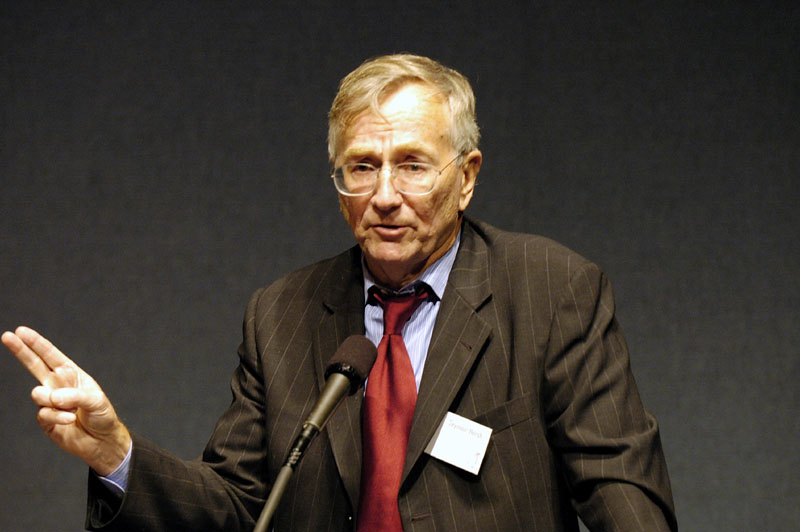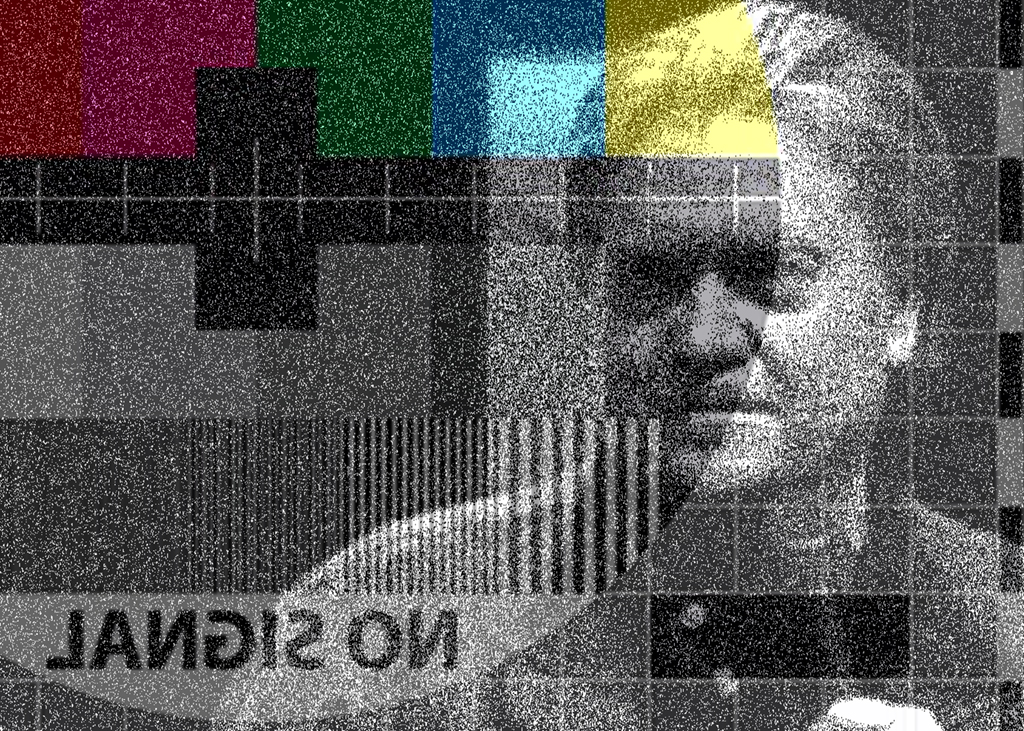‘The interesting thing is that they’re protesting against themselves. There’s no enemy out there. They know they are the enemy.’
J.G Ballard, Millenium[i]
The 2019 Reuters Institute Digital News Report points to increasing de-politicisation across the Western world. This accompanies a seemingly inexorable rising tide of ‘identitarian’ Populism, globally led by Steve Bannon. The movement channels latent anger into cynicism towards central governments and supra-national institutions such as the E.U.; just when we require solidarity to address climate chaos.
Symptomatic were Conservative Party tactics during U.K Election 2019 – under the influence of Bannon – promising nothing beyond ‘getting Brexit done’; in other words a negation of the country’s institutional ties with other states – rather than a vision for improvement. This recalls Donald Trump’s ongoing pledge to ‘DRAIN THE SWAMP’ of Washington politics.
DRAIN THE SWAMP!
— Donald J. Trump (@realDonaldTrump) October 6, 2019
In a climate of suspicion, roguish buffoons like Donald Trump, Jair Bolsonaro and Boris Johnson have lied and cheated their way to high office. The moral landscape has altered to a point where the truth doesn’t seem to count for much anymore; in contrast to a cosy relationship with Big Data, and plenty of campaign dosh, which is more vital than ever.
Delving deeper, these political trends are tremors from a seismic Internet Revolution radically re-shaping our societies and very brains. This new medium has proved a fruitful ground for the advancement, and enrichment, of varied corporate entities and human beings. Those benefitting include Canadian psychology Professor Jordan Peterson, arguably the first public intellectual of the Digital Age – with many of his lengthy YouTube lectures hitting numbers associated with music videos.
It is instructive that Steve Bannon targeted Peterson’s online devotees before the last Presidential election. Peterson came to prominence especially through the so-called culture wars, contributing to a ‘woke’ caricature, which really should be attributed to the liberal centre, given the emphasis leading lights such as Tony Blair, Barack Obama and Hilary Clinton placed on political correctness and multiculturalism.
Peterson’s cult status brings adulation of a type associated with Pop stars, drawing huge audiences to venues across the English-speaking world. A predominantly male audience has been impressed by a refusal to pay the usual fealties to political correctness, and offered the kind of sound, fatherly advice that many seem to lack, but Peterson abuses his power by peddling climate change denial, while demeaning collective institutions, and governments.
Politicide
In 2003 Israeli sociologist Baruch Kimmerling published a book called Politicide, which charted the destruction of the Palestinian nation as a political entity. He claimed the state of Israel was transforming Palestinians into a leaderless community struggling for an identity – as had previously been the case.[ii] Thus in 1969, then Prime Minister Golda Meir questioned the existence of a distinctive Palestinian people, an inquiry that might soon be aired again.
Israel’s erosion of Palestinian identity has been achieved through collective impoverishment, targeted assassination of key leaders and the age-old technique of divide and conquer. Now the Palestinian voice on the international stage has been reduced to a barely audible whimper.
A similar, though less overtly violent, campaign of Politicide is being waged by Steve Bannon, Dominic Cummings and other unelected political advisors across the Western world. Democracy is being corroded by sophisticated technology, including from the notorious Cambridge Analytica, mining data from social media and other online interactions to develop advertising specific to targeted groups in key marginals.
The old left that forged bonds both within countries and internationally, especially through working class solidarity is the immediate target of attack ads that are having an effect. In this respect, Margaret Thatcher’s 1980 comment ‘And you know, there is no society’ recalls Golda Meir’s aspersion of Palestinian identity. Lacking sufficient resources for social media campaigns, and pilloried by journalists increasingly beholden to conservative billionaires such as the Koch brothers, socialism is on the decline across Europe and beyond.
Drawing support away from the old left, so-called Populists – who really have little in common with the agrarian-radical originals of the late nineteenth century led by William Jennings Bryan – are incubating acceptance of a global corporate order, directing oppositional energies against what they characterise as a corrupt state – which of course is being hollowed out by those same corporations, through lobbying and regulatory capture.
The left needs to drop the woke nonsense. My latest for @spikedonline. https://t.co/aYbhg8KNut
— Andrew Doyle (@andrewdoyle_com) December 24, 2019
An important component of Politicide is for growing numbers to be turned off news content altogether. Thus the Reuters Digital News Report for 2019 found an average of 32% across a large number of countries actively avoid it, up from 29% the previous year. In the U.K. that figure reached 35% in the election years of 2019, a striking 11% increase on the previous poll. Such shifts do not occur by accident. Turning people off trusted news sources increases susceptibility to fake news arriving via political ads.
Last September Mathew D’Ancona outlined the ongoing involvement of Steve Bannon in Conservative Party tactics. In the last election, according to Adam Ramsay war was waged ‘on the political process, on trust, and on truth;’ a Hobbesian project ensuring ‘the whole experience is miserable, bewildering and stressful;’ all that remains is to ‘ask voters to make it go away.’
The success of the Bannon formula is not measured purely in terms of increasing vote share, but also in opponents losing support through apathy and despair. The most important social media platform remains Facebook, still the dominant player by quite a margin, especially for older people. There we find the kind of attack ads long a feature of U.S. political culture targeted precisely at voters in marginal or swing constituencies or states.
What was novel for the U.K. in 2019 was widespread indifference to the truth, with 88% of Conservative Facebook ads containing lies. This may have been what Dominic Cummings was referring to in his last blog post when he mused on how: ‘the ecosystem evolves rapidly while political journalists are still behind the 2016 tech.’[iii]
Both Steve Bannon and Dominic Cummings are clever political operators, they are not, however, geniuses. But the project of politicide, working distinctly to the advantage of large corporations, is the product of broader cultural currents. The first wave of the Internet Revolution is fraying old systems of thought, and recasting political discourse. The Jordan Peterson phenomenon is instructive.
The rise of the ‘Petersonites’
Notably, Steve Bannon mined the data of the followers of Jordan Peterson before the 2016 U.S. Presidential election as ‘they were looking for a father figure to tell them what to do,’ according to a Cambridge Analytica whistleblower.[iv] Apparently they possessed ‘the big five traits’ of easily manipulatable men: frustrated economic opportunities; an estranged father; enjoyment of word salad; not showering on a regular basis; and ranking in the top quartile for the Dunning-Kruger Effect.
Perhaps unsurprisingly given his fanbase, in the wake of Brexit Peterson compared the E.U. to the Tower of Babel: ‘a homogenous totalitarian structure that usurps the transcendent.’ This follows insinuation that transgender activists were equivalent to Maoists.
Jordan Peterson is not, however, a political extremist – by North American standards at least. Nonetheless, his generally compelling talks – with ideas distilled in particular from the archetypes of C.S. Jung and Aristotle’s virtues – have been adopted, and glossed, by a legion of far-right digital warriors. He also represents a successful formula for the entrepreneurial pursuit of an online personality in this neo-liberal zeitgeist that has been copied more broadly.
Peterson’s fame, or notoriety, derives mainly from impressive public speaking performances and televised debates rather than through books. Indeed, his literary output is a relatively modest two publications[v] – the most recent a self-help bestseller.
Like Donald Trump, Peterson is a master of the new digital medium. While the U.S. President specialises in cutting brevity – ‘show me someone who has no ego and he is a loser’[vi] – Jordan Peterson represents the opposite pole, opting for grandiloquent expression; dazzling audiences with a flurry of references; fluently recalled using streams of synonyms ‘maxing out’ any SAT Writing and Language test. He reaches a crescendo of self-righteousness when laying waste to scruffy woke opponents.
The Digital Age
We are in the early stages of a communications revolution reconfiguring human societies, and perhaps rewiring our brains.[vii] This Digital Age is characterised by a ‘secondary orality’ conveyed through video, podcast and memes that still depends on an inheritance of books.[viii] As the pace of change accelerated with the arrival of affordable smartphones from 2010, the quality of political journalism declined in tandem.
The great U.S. reporter Seymour Hersh recently offered a withering assessment of contemporary media to the effect that ‘We are sodden with fake news, hyped-up and incomplete information, and false assertions delivered non-stop by our daily newspapers, our televisions, our online news agencies, our social media, and our President.’[ix]

Seymour, ‘Si’, Hersh, photographed in 2004.
Crucially, leisure-reading of books[x] is giving way to multimedia engagement via smartphones, disseminated, mediated and curated through unregulated social media platforms; the most widely accessed of which, Facebook, refuses to vet political ads for their veracity, selling our data to the highest bidders.
It is perhaps unsurprising that abandonment of books in favour of digital ephemera should herald a cultural decline. On social media the image is king, and language, as Richard Seymour argues in the Twittering Machine, is increasingly reduced to its effects, like all manipulative communication, from marketing to military propaganda.[xi]
These developments are unravelling a profound cultural inheritance. Walter Ong contends that ‘More than any other single invention, writing has transformed human consciousness.’[xii] ‘By separating the knower from the known’, he says, ‘writing makes possible increasingly articulate introspectivity, opening the psyche as never before not only to the objective world quite distinct form itself but also to the interior self against whom the objective world is set.’[xiii]
It is through textual records, passed down and renewed by each generation of scholars, that the wide-ranging dialectics required for scientific research and philosophical enquiry occur. The development of writing allowed us to determine and convey facts.
The increasing dominance of a ‘secondary orality’ of video and podcast is shifting political debate away from philosophic “articulate intropsectivity”, and also bringing celebrity veneration, as “the knower” (or quickfire know-all such as Jordan Peterson) merges with what is “known.”
Moreover, unlike public intellectuals of the recent past, who conveyed facts and ideas in books, the output of a digital-era leading light arrives in a stream of video, more challenging to parse, or counter, than the venerable medium in print form. Thus, previously agreed upon facts are more easily dismissed as we enter an era of post-truth.
‘An explosion in identity talk’
Alongside devotion to vacuous celebrity, Richard Seymour observes that over the course of the last decade, as the numbers regularly accessing Twitter and Facebook grew into billions, there has been ‘an explosion in identity talk.’[xiv]
Jordan Peterson is perhaps the intellectual apotheosis of this trend. Thus, in 2016 after igniting controversy for refusing to adopt gender-neutral pronouns, he released a series of videos justifying his positions.[xv] Soon he had emerged as a global conservative champion in the culture war, ‘destroying’ interlocutors with well-rehearsed, and often, it must be said, reasonable arguments.
Peterson railed against a woke-ish political correctness that many on the left already acknowledged had lurched into absurdity, to the exclusion of more pressing discussions of climate change, ecological collapse, spiralling inequality and unaccountable digital platforms.
Amy Chua identifies acute problems with identity politics ‘on both sides of the political spectrum,’ which she says, ‘leaves the United States in a perilous new situation: almost no one is standing up for an America without identity politics, for an American identity that transcends and unites all the country’s many subgroups.’[xvi]
Peterson has amassed a reasonable fortune in the process of emerging as both hero and villain in the febrile culture war. Knowingly or otherwise, he has served the interests of Bannon and his ilk.
Narrowing Debate
Jordan Peterson is broadly correct that the parameters of debate in Anglophone so-called liberal – or ‘woke-ish’ to use the term de jour – media such as The Guardian and The New York Times have narrowed. The phenomenon of no-platforming outspoken thinkers such as Germain Greer for questioning whether a transgender individual should be considered a woman is disturbing. The media’s obsession with celebrity sex scandals often amounts to little more than clickbait.
Harvey Weinstein believes he can rebuild career if cleared of charges https://t.co/CJbsye1pIR
— Guardian news (@guardiannews) January 4, 2020
Moreover in America, and elsewhere, a range of media from Fox News to Breitbart have picked up the slack, accommodating so-called conservative, increasingly far-right, standpoints.
Similarly, right-wing views are well represented in U.K. media by established players such as The Telegraph, Daily Mail and Daily Express as well as newcomers like Spiked, whose founders’ journey from Marxism to the alt-right is symptomatic. The traditional viewpoint that Peterson purports to represent is far from being marginal across the Anglophone world.
A shift towards identity politics can be traced to the fissuring of the political order at the end of the Cold War, as mainstream centre-left parties in the U.S. and U.K. pivoted to the centre-right.
Thus in the U.S., Democratic Presidents Bill Clinton and then Barack Obama essentially ignored spiralling inequalities attending the rise of the digital behemoths, assuaging discontents by endeavouring to roll out state-funded medical care that has done little to break the dominance of Big Pharma and an epidemic of legal drug addiction. With identity politics centre-stage, Obama’s victory – that ‘Audacity of Hope’ – was mistakenly viewed as the harbinger of a tolerant and inclusive society.
Then stories such as the ‘birther’ controversy – an unfounded rumour that Obama had not been born in the United States which, if true, would have debarred him from the presidency – generated endless columns in the liberal media,[xvii] to the exclusion of reporting on social and environmental issues highlighting the despoliation of the Earth by large corporations.
Focus on identity politics, from race to feminism and same-sex marriage, not to mention abortion, diverted attention from the long-standing exclusion of the poor of all ‘races’, with real wages stagnating for decades,[xviii] while extraordinary wealth and privilege has been concentrated in increasingly few hands.
Donald Trump tapped into economic insecurities – offering up poor Latino immigrants as a scapegoat to blue collar workers – to win the Presidency of 2016. Hilary Clinton and her handlers persevered with identity politics, emphasising the importance of a female candidacy, and focusing on her opponent’s philandering, rather than addressing entrenched poverty and social exclusion, let alone the excesses of the military industrial complex, and lost.
In the U.K., the Labour Party also settled in the centre, or even centre-right, under Tony Blair and Gordon Brown (1997-2010). New Labour essentially accepted Margaret Thatcher’s (1979-90) market deregulations and privatisations to the satisfaction of the newspaper barons that tend to decide elections. ‘It’s The Sun Wot Won It’ read Rupert Murdoch’s Sun after John Major’s come-from-behind victory in 1992 – a cheeky headline masking a sinister political reality.

The Sun newspaper, April 11th, 1992.
As Mark Fisher memorably put it: ‘Blairism has consolidated and outstripped the ideological gains of Thatcherism by ensuring the apparently total victory of PR over punk, of politeness over antagonism, of middle class utility over proletarian art.’[xix]
Later David Cameron and his fellow ‘modernisers’, or ‘One Nation’ Tories, rebranded the Conservative Party in the dress code of New Labour, embracing non-economic issues such as marriage equality and increasing the visibility of female and ethnic minority representatives, while pursuing Thatcherite, austerity policies in the background.
This approach yielded electoral success in 2010 and 2015, before Brexit derailed the formula. Similar to Trump’s victory over Hilary, Brexit bubbled up, dialectically, inside the cauldron of identity politics first stirred by the centre-right.
It is disingenuous therefore for Jordan Peterson to bemoan the excesses of identity politics given it was the centre-right he claims to support that has promoted ‘woke-ish’ causes. Grandstanding on controversies over transgender identity simply gives oxygen to debates that are of little consequence, at least by comparison with fundamental issues of human welfare and climate chaos.
Logos
As a psychologist with extensive clinical experience Jordan Peterson is acutely attuned to what makes a primarily male target audience tick. Skillful rhetoric taps into the concerns of essentially Anglophone or Nordic males, perturbed by suggestions they should be ashamed of privileged upbringings, another unhelpful idea that entered debates around identity politics.
Importantly, Peterson also gave intellectual credibility to belief in God after decades of sustained attacks from evangelical atheists such as Richard Dawkins, and, following Jung, identifies the role of spirituality in recovery from mental illness. His appeal to mythology also presented novel insights to an audience jaded by a dominant discourse of scientific materialism.
More problematically, however, Peterson also styles himself a philosopher and scientist. But as James Hamblin pointed out in The Atlantic what Peterson is really selling is a sense of order and control. Thus, while science is about settling questions and determining facts, self-help is concerned with supplying immediate answers to the question of how to live in the world. Hence, a recurring idea in Jordan Peterson’s book is that humans need rules as ‘an antidote to chaos.’[xx]
A crucial concept that Peterson has pronounced on is ‘logos’, which the Aristotelian philosopher Alasdair MacIntyre in Whose Justice Which Rationality describes as follows:
To engage in intellectual enquiry is then not simply to advance theses and to give one’s rational allegiance to those theses which so far withstand rational refutation; it is to understand the movement form thesis to thesis as a movement towards a kind of logos which will disclose how things are, not relative to some point of view, but as such.
Essentially, logos, in contrast to moral relativism, permits us to pronounce on moral ‘truths.’ In the wrong hands, however, it leads to moral absolutism, and is a sinister recipe for totalitarianism of a sort the Catholic Church institutionalised through the idea of a Pope speaking ex cathedra.
In our time, where celebrity veneration increasingly equates the knower with the known, real danger lurks in vesting any individual with a singular authority. We should instead assess the merit of their ideas on a case-by-case basis.
Jordan Peterson makes compelling arguments regarding the excesses of political correctness, and even in assessing virtues necessary for a good life, but he should certainly not be considered omniscient, or even competent, in fields beyond his ken.
The ‘Lion Diet’
Notably, Peterson has revealed himself as a climate change denier having argued before the Cambridge Union that views on climate change are inseparable from political orientations,[xxi] an assumption no doubt resting easily with a conservative fanbase, or market. It would certainly have pleased Steve Bannon.
Here we can see the contradiction that lies at the heart of Peterson between the scientist and the charmer, with the latter winning out. One may speculate as to why he holds these views that are at variance with scientific orthodoxy. Perhaps adherence to a ‘carnivore diet’ led to the distortion and departure from science, and logos.[xxii]
The edifice of Peterson’s ideas starts to crumble when we examine the ‘Lion Diet’ he has adopted on the advice of his daughter Michaela. James Hamblin recalls how:
On the comedian Joe Rogan’s podcast, Jordan Peterson explained how Mikhaila’s experience had convinced him to eliminate everything but meat and leafy greens from his diet, and that in the last two months he had gone full meat and eliminated vegetables. Since he changed his diet, his laundry list of maladies has disappeared, he told Rogan. His lifelong depression, anxiety, gastric reflux (and associated snoring), inability to wake up in the mornings, psoriasis, gingivitis, floaters in his right eye, numbness on the sides of his legs, problems with mood regulation—all of it is gone, and he attributes it to the diet.
Bannon
Trump’s victory and the Brexit Referendum are products of a profound, and arguably justifiable, disillusionment with the political status quo. Washington and Brussels are both seen as corrupt centres of power. Many of the arguments against these institutions are valid, but ignore the essential functions federal and supranational institutions still perform, with the baby being thrown out with the bathwater in the case of Brexit.
Of more importance to Populist success, however, has been the growing sense of ‘them’ and ‘us’, derived from identity politics. Mistakenly characterised as ethnic pride, it diminishes solidarity between human beings. Thus we enter the third decade of the millennium increasingly lonely, anxious, depressed, destructive and dependent, to quote Erich Fromm.
The Internet Revolution has brought opportunities for a few, particularly the first corporations to optimise social media, and aggressively pursue audience share through acquisition of kindred platforms in Facebook’s case. It has also allowed human beings of varied intelligences to thrive, from Donald Trump to Jordan Peterson, and more encouragingly, Greta Thunberg.
Peterson is the reigning conservative intellectual champion, who has used an undeniable talent to deflect attention from the real challenges confronted by humanity. His strawman of the left is really a creation of the liberal centre. Peterson may prove to be a dangerous guru whose eccentric tastes have brought climate denial.
The intellectual decay associated with Peterson provides the soil wherein Bannon’s seedlings germinate. Peterson informs his legions of fans to stand up straight and ‘own’ their prejudices (whether against transgender individuals or supranational institutions), while Bannon’s software prowls online preferences for signs of alienation.
We are only slowly coming to terms with a Digital Age reshaping our reality. The rise of a “secondary orality” is fraying our allegiance to the older print medium of books that acted as a conduit for facts. Video and podcast are easily accessed but content is not easily parsed. Moreover, as we retreat into a solitary cyberspace the view of the world is often jaundiced, and Bannon wins.
Feature Image by Gage Skidmore/wikicommons: Jordan Peterson speaking with attendees at the 2018 Young Women’s Leadership Summit hosted by Turning Point USA at the Hyatt Regency DFW Hotel in Dallas, Texas.

[i] J. G. Ballard, Millennium People, Fourth Estate, London, 2003, p.109.
[ii] Deaglán de Bréadún, ‘Contemplating Politicide’, Irish Times, August 9th, 2003, https://www.irishtimes.com/news/contemplating-politicide-1.369096
[iii] Dominic Cummings, ‘‘Two hands are a lot’ — we’re hiring data scientists, project managers, policy experts, assorted weirdos…’ Blog Post, January 2nd, 2020, https://dominiccummings.com/2020/01/02/two-hands-are-a-lot-were-hiring-data-scientists-project-managers-policy-experts-assorted-weirdos/
[iv] Andrew Hall, ‘Steve Bannon Targeted Jordan Peterson’s Followers Because They Were ‘Easy To Manipulate’’, Laughing in Disbelief, November 4th, 2019, https://www.patheos.com/blogs/laughingindisbelief/2019/11/steve-bannon-targeted-jordan-petersons-followers-because-they-were-easy-to-manipulate/
[v] Maps of Meaning: The Architecture of Belief, Routledge, Abingdon, 1999 and 12 Rules for Life: An Antidote to Chaos. Penguin Random House, New York, 2018. Peterson has also authored or co-authored more than a hundred academic papers.
[vi] https://twitter.com/realdonaldtrump/status/225949765324636160?lang=en
[vii] Hilary Bruek, ‘This is what your smartphone is doing to your brain — and it isn’t good’, March 1st, 2019, Business Insider, https://www.businessinsider.com/what-your-smartphone-is-doing-to-your-brain-and-it-isnt-good-2018-3?r=US&IR=T
[viii] Walter Ong, ‘Orality and Literacy – The Technologisation of the Word METHVE and co. London, 10982 p.2
[ix] Seymour M. Hersh, Reporter: A Memoir, New York, Random House, 2018, p.3.
[x] Untitled, ‘Leisure Reading in the U.S. is at an all time low’, Washington Post, June 29th, 2018, https://www.washingtonpost.com/news/wonk/wp/2018/06/29/leisure-reading-in-the-u-s-is-at-an-all-time-low/
[xi] Richard Seymour, The Twittering Machine, Indigo, London, 2019, p.118
[xii] Ong p. 78
[xiii] Ibid, p.105
[xiv] Seymour, 2019, p.100
[xv] Jessica Murphy, ‘Toronto professor Jordan Peterson takes on gender-neutral pronouns’, BBC News, November 4th, 2016, https://www.bbc.com/news/world-us-canada-37875695
[xvi] Amy Chua, ‘How America’s identity politics went from inclusion to division’, The Guardian, March 1st, 2018, https://www.theguardian.com/society/2018/mar/01/how-americas-identity-politics-went-from-inclusion-to-division
[xvii] Michael Calderone, ‘Fox News Gives Donald Trump A Pass On Birther Crusade It Helped Fuel’, Huffington Post, August 23rd, 2016. https://www.huffpost.com/entry/fox-news-donald-trump-birtherism_n_57e54a06e4b08d73b830d54e
[xviii] Drew Desilver, ‘For most U.S. workers, real wages have barely budged in decades’, Pew Research Centre, August 7th, 2018, https://www.pewresearch.org/fact-tank/2018/08/07/for-most-us-workers-real-wages-have-barely-budged-for-decades/
[xix] Mark Fisher, K-Punk – The Collected and Unpublished Writings of Mark Fisher (2004 -2016), Shepperton, London, 2018, p.61
[xx] James Hamblin, ‘The Jordan Peterson All-Meat Diet, The Atlantic, August 28th, 2018, https://www.theatlantic.com/health/archive/2018/08/the-peterson-family-meat-cleanse/567613/
[xxi] Jordan Peterson at the Cambridge Union: https://www.youtube.com/watch?v=pBbvehbomrY
[xxii] Adam Gabbatt, ‘My carnivore diet: what I learned from eating only beef, salt and water’, The Guardian, September 11th, 2018, https://www.theguardian.com/food/2018/sep/10/my-carnivore-diet-jordan-peterson-beef




